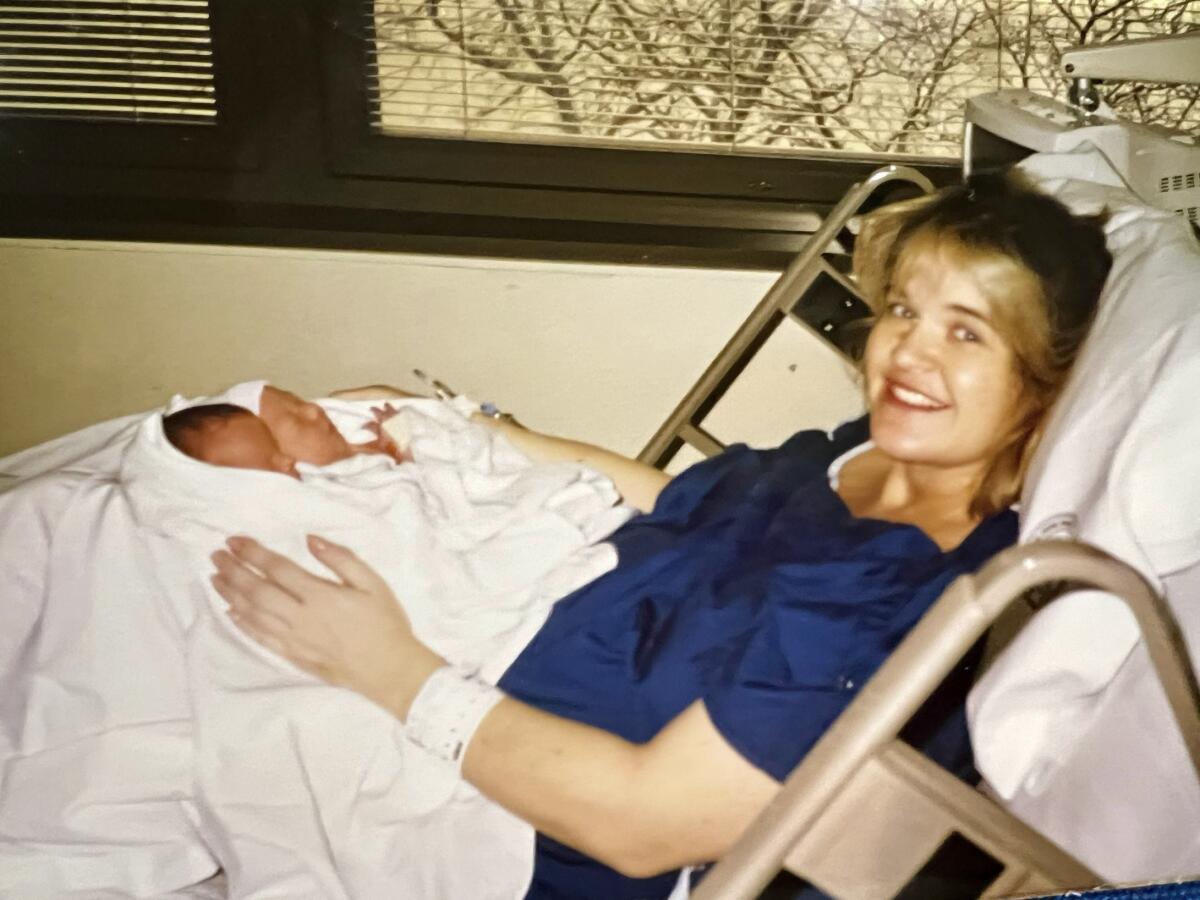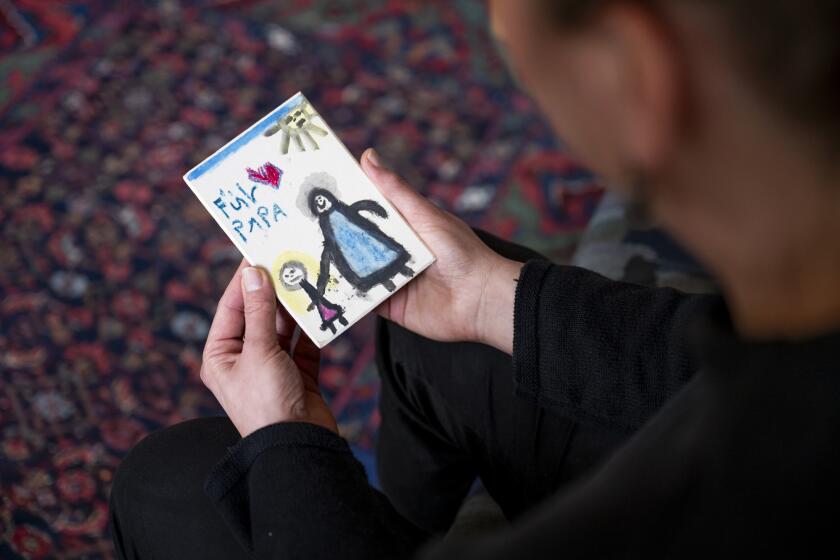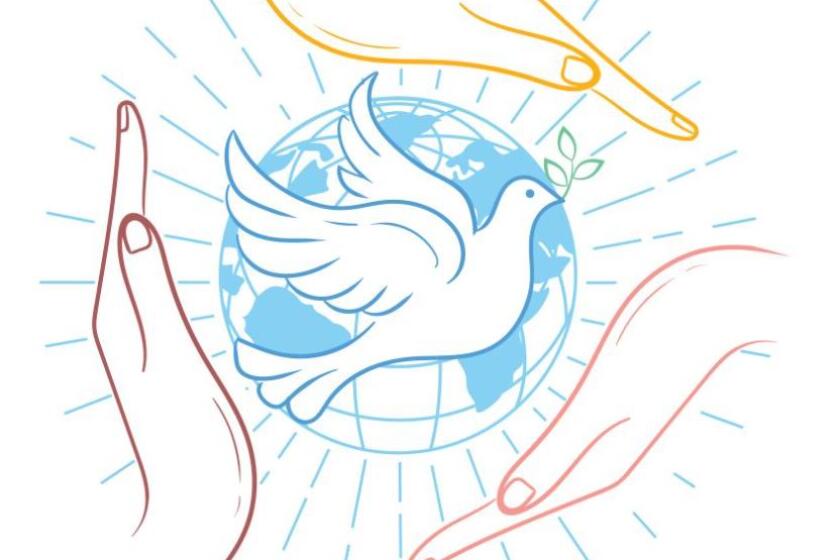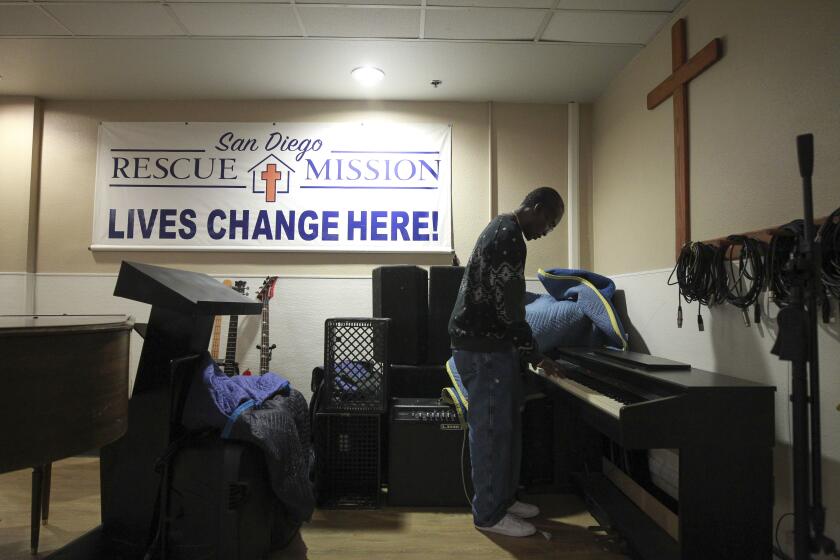Opinion: The assault on fertility treatment is unconscionable. I was born thanks to IVF.

Sabellico is the vice chair of the Carlsbad Planning Commission and lives in Carlsbad.
“The dish is pregnant.” That was the call my parents received from the fertility doctor at Walter Reed Military Medical Center on Mother’s Day in 1997. Eight months later, my twin sibling and I were born.
I literally owe my life to in vitro fertilization, the procedure that assists women struggling with infertility, and that extremist far-right fundamentalists from Alabama are now notorious for trying to ban across the nation.
Consider the millions of women, like my mom, who choose IVF. She was so determined to raise children with love and support that she underwent numerous grueling procedures to make parenthood (and me) a reality. Children need more parents like that, not fewer.
For couples who don’t suffer from infertility, it’s difficult to imagine the pain that other couples endure, like my parents, in order to start families of their own. My parents navigated endless paperwork and pulled every string to enter the military’s IVF program, which was still in its early stages. They even paid out of pocket for medications imported from Canada, and my dad took a teaching position at the Naval Academy so they could live closer to the hospital.
That’s what makes me so angry at what these extremists are hellbent on imposing. Not just because my sibling and I wouldn’t be here without IVF, but because IVF is vital for the nearly 1 in 6 families who have received some type of fertility treatment in the U.S. and deserve the joy of children as much as anyone else.
Just like all women have the right to decide when to give birth, all families deserve the freedom to choose their own path to parenthood, including IVF. Yet the Alabama Supreme Court and a growing number of hard-right extremists think people like me and my sibling are abominations that need to be outlawed. That’s why policies like the Life Begins at Conception Act — which include zero protections for IVF — are so dangerous.
That’s cruel. And let’s be super clear — stopping women from starting families is about as far from “pro-life” as anyone can be. But the right-wing extremists who are behind this ban have never let hypocrisy get in the way of their fervent beliefs.
This is the crazy reality we are in after the disastrous Dobbs decision in 2022. Women’s rights are under attack so intensely that now being “pro choice” doesn’t just mean defending a woman’s right to end a pregnancy, it’s also shockingly about defending a woman’s right to start one.
To most people, the loss of our long-held constitutional right to determine control of one’s own body was an embarrassing and heart-wrenching moment in the history of our nation. We’re back to talking about IVF and stem cell research — things that were once thought to be settled law. And these extremists won’t stop at banning IVF. Next they’ll go after surrogacy, and then adoption for same-sex couples. We can’t let them succeed.
At both the state and local levels, we need to ensure pro-choice protections explicitly include IVF and other medical treatments women rely on. And most importantly, we all need to vote pro-choice up and down the ballot come November.
Just this month, a proposal from Sen. Patty Murray, D-Washington, to expand IVF for servicemembers and veterans was blocked in the Senate. Another proposal from Sen. Tammy Duckworth, D-Illinois, which would have established a statutory right for all Americans to access IVF, met the same fate. And until both houses of Congress have pro-choice majorities, the result will always be the same.
This election, women across America are counting on you like never before to vote for choice. My mother, my sibling and more than 8 million Americans who were conceived through IVF are counting on you, too.
Get Weekend Opinion on Sundays and Reader Opinion on Mondays
Editorials, commentary and more delivered Sunday morning, and Reader Reaction on Mondays.
You may occasionally receive promotional content from the San Diego Union-Tribune.




